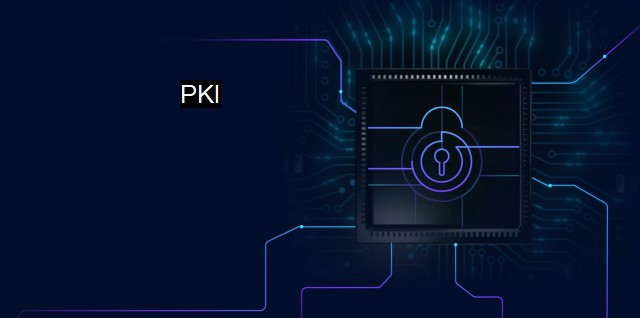What is PKI?
Understanding the Importance of Public Key Infrastructure (PKI) for Cybersecurity: Exploring Asymmetric Cryptography, Digital Signatures, and Certificate Authorities
Public Key Infrastructure (PKI) is one of the most effective cybersecurity approaches currently deployed to protect data both at rest and in transit. It serves the cause of facilitating the secure electronic transfer of information for a multitude of activities such as e-commerce, internet banking, and secure email. It enforces a higher level of confidentiality, data integrity, and authentication through the implementation of cryptography.In simple terms, PKI is a complex combination of hardware, software, policies, and standards to create, manage, distribute, store, and revoke digital certificates. The PKI cybersecurity architecture validates the authenticity of an individual or device to securely exchange data over the internet by leveraging two keys – a private key, which remains secret, and a public key, easily available. While the former is under the possession of the user resorting to PKI, the latter is dispersed widely across the internet, available to whoever wants to send an encrypted message to the private key holder.
In this mechanism, a Certificate Authority (CA) issues digital certificates that hold the public key and the identity of the owner. When the digital certificate is attached to an electronic document, it verifies the identity of the server or sender thereby removing any risk of cybercriminal impersonation. To bolster the credibility of this process, two types of CAs are typically involved: Root and Intermediate CAs.
PKI works alongside asymmetric encryption (also known as public-key encryption), in which two different cryptographic keys are used. This algorithm is particularly secure because one key is openly shared, while the other remains confidential. If Itamura encrypts the data with the receiver's public key, the only entity capable of unencrypting it would be the receiver's private key.
As a cybersecurity protocol, PKI helps organizations meet the ever-increasing demand for secure online transactions. By providing a more secure foundation for online activities, it offers effective protection against cyber threats such as phishing, data breaches, and cyber espionage. PKI ensures only authorized individuals gain access to specific data and guarantees their identity by validating their credentials systematically.
Practically every antivirus software uses PKI security programs to detect and neutralize any invasive viruses, malware, or hackers. These PKI-based programs constantly update their databases, and every time a user navigates a webpage or opens an email, PKI facilitates an evaluation, using encryption protocols such as Secure Socket Layer (SSL) or Transport Layer Security (TLS), thus ensuring data integrity and online communication's privacy.
When associating with antivirus solutions, PKI plays a critical role in updates and patch management. For many antivirus solutions, regular updating is essential, and PKI ensures the security of these update processes, protecting systems from potential threats, and helping to maintain the health and integrity of systems worldwide.
Public Key Infrastructure represents a robust cybersecurity approach, anchoring many aspects of online security and supporting antivirus mechanisms. From verifying user identities, encrypting and decrypting emails and documents, to securing e-commerce transactions, PKI’s role in securing the virtual aspect of human life is profound and indispensable. Hence, understanding and implementing PKI improves individuals and enterprise's cybersecurity posture, ensuring they are equipped to counter the ever-evolving landscape of cyber threats.

PKI FAQs
What is PKI in cybersecurity?
Public Key Infrastructure (PKI) is a cybersecurity framework that uses public and private key pairs to secure communications over the internet. PKI is used to authenticate digital certificates, encrypt data, and establish secure connections between two parties.How does PKI help with antivirus protection?
PKI can help antivirus protection by providing a secure method for distributing antivirus updates and patches, and by establishing secure connections between antivirus software and the servers hosting these updates. PKI can also be used to authenticate the digital signatures of antivirus software and ensure that they are legitimate and trustworthy.What are some common applications of PKI in cybersecurity?
Some common applications of PKI in cybersecurity include secure email communications, digital signatures, authentication of users and devices, secure online transactions, and securing web applications.What are the benefits of using PKI in cybersecurity?
The benefits of using PKI in cybersecurity include increased security for online communications and transactions, improved privacy and confidentiality, authentication of users and devices, improved trust and accountability, and increased compliance with regulatory requirements. PKI can also help prevent unauthorized access, data theft, and other cyber attacks.Related Topics
Digital Certificates Authentication Encryption Certificate Authority (CA) Secure Email
| | A | | | B | | | C | | | D | | | E | | | F | | | G | | | H | | | I | | | J | | | K | | | L | | | M | |
| | N | | | O | | | P | | | Q | | | R | | | S | | | T | | | U | | | V | | | W | | | X | | | Y | | | Z | |
| | 1 | | | 2 | | | 3 | | | 4 | | | 7 | | | 8 | | |||||||